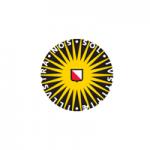项目介绍
Do you want to contribute to a better understanding of the opportunities of agriculture in rewettend peatlands? Then this PhD position might be for you!
About the position
The research of this PhD is embedded in the European project Palus Demos, which focuses on the possible benefits of paludiculture (productive land use of wet and rewetted peatlands). Next to production, these benefits may include carbon sequestration and reduction of greenhouse gas (GHG) emission, (bio)degradation of chemicals and improvement of water quality, and increase of biodiversity in the paludiculture itself and the wider area.
The focus of the work will be primarily related to samples from the field site Burkmeer, which is a peat-rewetting project and demonstration site less than 12 km north of Amsterdam. The Burkmeer polder has a unique mix of landscape systems, cultural heritage, ecological value and agriculture. You will analyze the samples in the IBED labs using advanced experimental techniques including measurements for chemical water quality (LC-HRMS), carbon storage, and do field work related to GHG emission, biodiversity (e-DNA, imaging and acoustics) and plant growth.
PALUS DEMOS aim to inspire entrepreneurs in agriculture, biobased circular industry, communities, politicians, water and nature organizations by developing a range of best practices and land uses in strategic locations in three European countries. As such, in the project, other paludiculture demonstration sites in UK and Ireland are available for comparison.
You will work with a range of stakeholders to develop (socio-)economic models including government, industry, academia, and society. Therefore, your tasks will include a close collaboration with project partners from around Europe, actively contributing to the overarching project deliverables, and participation in project meetings, relevant conferences and workshops. You will have the opportunity to further develop and improve your skillset by attending courses offered by the Graduate School PE&RC. You will communicate your scientific findings through publications in peer-reviewed journals, and where applicable to involved stakeholders via other forms of dissemination. Part of your workload (10%) will consist of teaching activities at our institute, assisting staff members in their courses at the MSc level (in English) and supervising thesis research.
Do you enjoy working in an interdisciplinary research setting, and closely linked to end-users of your work? The Institute for Biodiversity and Ecosystem Dynamics (IBED) is looking for an ambitious PhD Nature-based services by agriculture in rewetted peatlands. Your research will take place at the Department of Freshwater and Marine Ecology (FAME) within IBED.
What are you going to do?
In this position, you will:
- Inventorize existing and create novel data on chemical water quality (LC-HRMS), carbon storage, GHG emission, biodiversity (e-DNA, imaging and acoustics) and plant growth. This information will be related to information on water flows and human pressures;
- Design eco-hydrological scenarios for improved connectivity and dynamics across the landscape;
- Experiment with and test options related to paludiculture management to maximise ecosystem services;
- Validate preferred management from an ecological, water quality and production perspective, in terms of these benefits for the paludiculture as well as for the surrounding ecosystem.
Together with stakeholders, you will reflect on context-specific requirements for a fruitful implementation of the developed approach. You will work within an interdisciplinary and international cohort of young researchers.
You will combine field, laboratory and modelling work, and communicate your results via conference presentations and publications in peer-reviewed journals. You will write a high-quality PhD thesis, showing your capabilities as independent researcher, while closely working with the program team. Furthermore, we expect you to be an active member of our research group and to take part in teaching efforts, including assisting in practical courses and supervision of bachelor and master students.
Your experience and profile
- A successfully completed MSc degree in biology, environmental or earth sciences, with a preferably a focus on aquatic ecology/chemistry;
- You can show relevant scientific and technical skills, have preferable experience with practical field and laboratory work and with modelling;
- Good analytical and statistical skills, including the use of programming languages;
- You have excellent English language and communication skills;
- You are motivated to pursue a PhD, are independent and have the ability to collaborate and to engage in a multidisciplinary network.
Our offer
A temporary contract for 38 hours per week for the duration of 4 years (the initial contract will be for a period of 18 months and after satisfactory evaluation it will be extended for a total duration of 4 years). The preferred starting date is. The preferred starting date is as soon as possible after February 1st, in mutual agreement This should lead to a dissertation (PhD thesis). We will draft an educational plan that includes attendance of courses and (international) meetings. We also expect you to assist in teaching undergraduates and master students.
For this position the University Job Classification profile “Promovendus” (PhD student) applies. Your salary will be €2,872 gross per month in the first year and will increase to €3,670 in the final year, based on full-time employment of 38 hours per week. This does not include 8% holiday allowance and 8,3% year-end allowance. Select situation depending on WP/OBP position. The Collective Labour Agreement of Universities of the Netherlands is applicable.
Besides the salary and a vibrant and challenging environment at Science Park we offer you multiple fringe benefits:
- 232 holiday hours per year (based on fulltime) and extra holidays between Christmas and 1 January;
- multiple courses to follow from our Teaching and Learning Centre;
- a complete educational program for PhD students;
- multiple courses on topics such as leadership for academic staff;
- multiple courses on topics such as time management, handling stress and an online learning platform with 100+ different courses;
- 7 weeks birth leave (partner leave) with 100% salary;
- partly paid parental leave;
- the possibility to set up a workplace at home;
- a pension at ABP for which UvA pays two third part of the contribution;
- the possibility to follow courses to learn Dutch;
- help with your registration at UvA Staff Housing (application for a studio or small apartment when you’re moving from abroad).
Are you curious to read more about our extensive package of secondary employment benefits, take a look here.
About us
The Institute for Biodiversity and Ecosystem Dynamics (IBED) is one of eight research institutes of the Faculty of Science at the University of Amsterdam. The research at IBED aims to unravel how ecosystems function in all their complexity, and how they change due to natural processes and human activities. At its core lies an integrated systems approach to study biodiversity, ecosystems and the environment. IBED adopts this systems approach to ecosystems, addressing abiotic and biotic factors, and the interplay between those. The IBED vision includes research encompassing experimental and theoretical approaches at a wide variety of temporal and spatial scales, i.e. from molecules and microorganisms to patterns and processes occurring at the global scale. The University of Amsterdam has excellent high performance computing facilities. Furthermore, IBED has a dedicated computational support team with specialized knowledge of bioinformatics, (geo)database management and scientific programming. IBED also works with non-academic partners to deliver transdisciplinary science for society.
If you feel the profile fits you, and you are interested in the job, we look forward to receiving your application. You can apply online via the button below. We accept applications until and including 11 December, 2024.
Applications should include the following information (all files besides your cv should be submitted in one single pdf file):
- a detailed CV;
- a letter of motivation;
- the names and email addresses of two references who can provide letters of recommendation.
Only complete applications received within the response period via the link below will be considered.
A knowledge security check can be part of the selection procedure (for details: national knowledge security guidelines).
We will invite potential candidates for interviews soon after the closing date.
Do you have any questions or do you require additional information? Please contact:
- Annemarie van Wezel, a.p.vanwezel@uva.nl
联系方式
电话: +31 (0)20 525 1400相关项目推荐
KD博士实时收录全球顶尖院校的博士项目,总有一个项目等着你!





